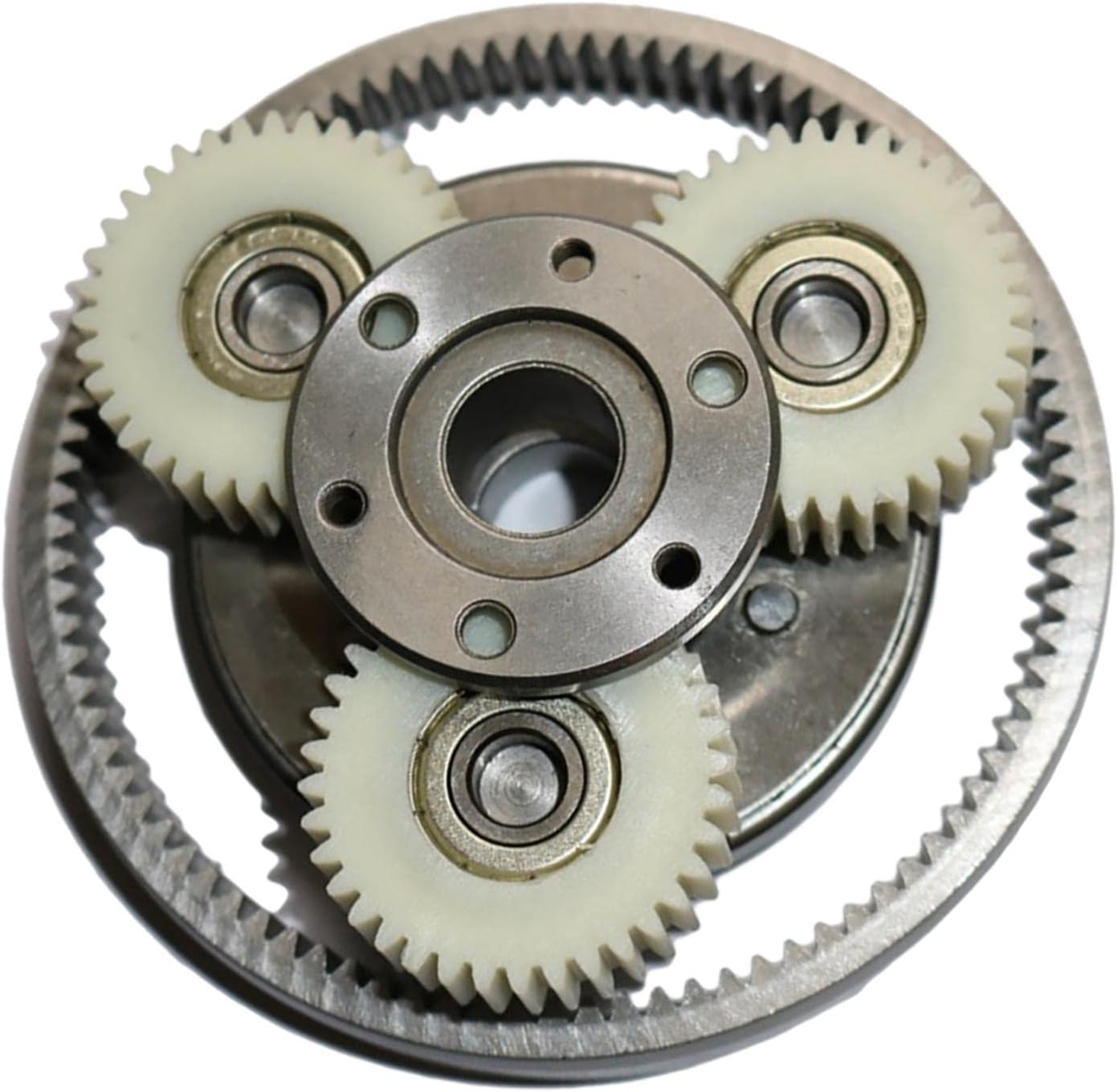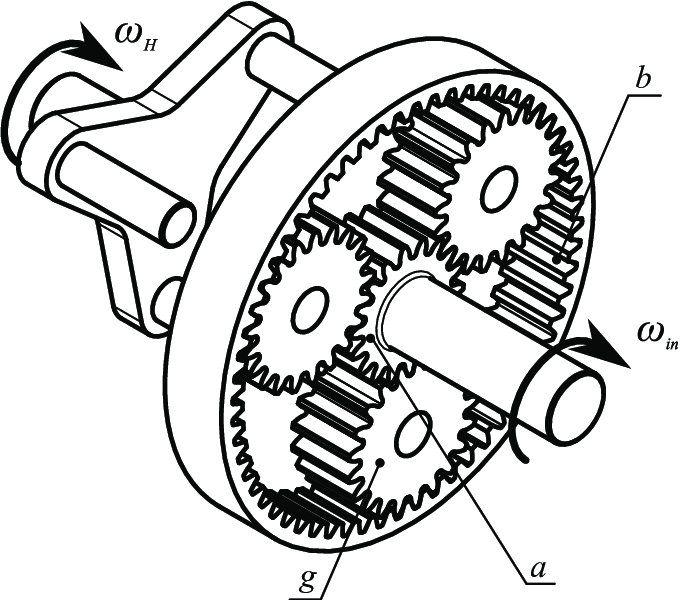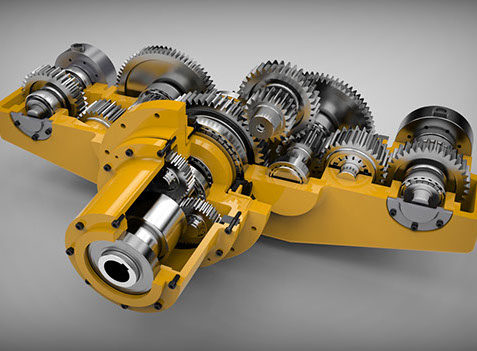Product Description
Product Description
Planetary Gear Stepping Motor :
Precision high-end upgrade with Nema8, Nema 11, Nema14, Nema 17, Nema23, Nema 24
stepper motor; low noise, low vibration, firm and durable. Increase torque at low speed.
Reduction ratio:1:3.7 , 1:5.2 , 1:14 , 1:19 ,1:27 ,1:51 , 1:71 ,1:100 ,1:139 , 1:189 ,1:264 , 1:369 ,And 48 hours delivery , in stock .
Application:
Automation control, medical equipment, textile machinery,and packaging machinery fields. Not only in the field of the automation industry, it also has a good use status in the home. Products with low speed and inertia are often seen: electric curtains, electric shutters, etc.
Product Parameters
Planetary Gear Box Specification:
| Housing Material | Metal |
| Bearing at Output | Ball Bearings |
| Max.Radial Load(10mm from flange) | 50N |
| Max.Shaft Axial Load | 30N |
| Radial Play of Shaft (near to Flange) | ≤0.08mm |
| Axial Play of Shaft | ≤0.3mm |
| Backlash at No-load | 1 stage≤1°,2stage≤1.2°,3stage≤1.5° |
20HS Hybrid Stepping Motor Specifications:
20HS1450 Planetary Gearbox Motor Specifications: |
||||||||||||||||||||||||||||||||||||||||||||||||||||||||||||||||
| Reduction ratio | 3.71 | 5.18 | 14 | 19 | 27 | 51 | 71 | 100 | 139 | 189 | 264 | 369 | ||||||||||||||||||||||||||||||||||||||||||||||||||||
| Total Height(L1+L2) (mm) | 53.4 | 53.4 | 60 | 60 | 60 | 66.4 | 66.4 | 66.4 | 66.4 | 72.8 | 72.8 | 72.8 | ||||||||||||||||||||||||||||||||||||||||||||||||||||
| Output torque ( mN.m) | 50 | 70 | 170 | 231 | 328 | 558 | 777 | 1095 | 1522 | 1871 | 2000 | 2000 | ||||||||||||||||||||||||||||||||||||||||||||||||||||
| Total Weight(g) | 91 | 91 | 97 | 97 | 97 | 103 | 103 | 103 | 103 | 109 | 109 | 109 | ||||||||||||||||||||||||||||||||||||||||||||||||||||
| Number of gear trains | 1 | 2 | 3 | 4 | ||||||||||||||||||||||||||||||||||||||||||||||||||||||||||||
| Reducer Length(L2) (mm) | 23.4 | 30.0 | 36.4 | 42.8 | ||||||||||||||||||||||||||||||||||||||||||||||||||||||||||||
| Efficiency | 90% | 81% | 73% | 66% | ||||||||||||||||||||||||||||||||||||||||||||||||||||||||||||
| 20HS6401 Planetary Gearbox Motor Specifications: | ||||||||||||
| Reduction ratio | 3.71 | 5.18 | 14 | 19 | 27 | 51 | 71 | 100 | 139 | 189 | 264 | 369 |
| Total Height(L1+L2) (mm) | 64.4 | 64.4 | 71 | 71 | 71 | 77.4 | 77.4 | 77.4 | 77.4 | 83.8 | 83.8 | 83.8 |
| Output torque ( mN.m) | 100 | 140 | 340 | 462 | 656 | 1117 | 1555 | 2000 | 2000 | 2000 | 2000 | 2000 |
| Total Weight(g) | 131 | 131 | 137 | 137 | 137 | 143 | 143 | 143 | 143 | 149 | 149 | 149 |
| Number of gear trains | 1 | 2 | 3 | 4 | ||||||||
| Reducer Length(L2) (mm) | 23.4 | 30 | 36.4 | 42.8 | ||||||||
| Efficiency | 90% | 81% | 73% | 66% | ||||||||
Detailed Photos
| Application: | Automation Control, Medical Equipment, Textile Mac |
|---|---|
| Speed: | Variable Speed |
| Number of Stator: | Two-Phase |
| Excitation Mode: | HB-Hybrid |
| Function: | Control, Driving |
| Number of Poles: | 2 |
| Samples: |
US$ 42/Piece
1 Piece(Min.Order) | |
|---|
| Customization: |
Available
| Customized Request |
|---|

Can planetary gears be used in high-torque applications?
Yes, planetary gears are well-suited for high-torque applications due to their design characteristics and capabilities. Let’s explore why planetary gears can be used in high-torque applications:
- Torque Distribution:
Planetary gears are designed to distribute torque across multiple gear teeth, allowing them to handle higher torque loads. The arrangement of planet gears around the sun gear and meshing with the ring gear enables torque to be transmitted through multiple contact points simultaneously. This distributed torque distribution helps in reducing stress on individual gear teeth and enhances the overall torque-carrying capacity of the gear system. As a result, planetary gears can effectively handle high torque loads without compromising performance or durability.
- High Torque Density:
Planetary gears offer high torque density, meaning they can transmit a significant amount of torque relative to their size and weight. The design of planetary gears allows for multiple gear teeth to engage simultaneously, distributing the load and increasing torque-carrying capacity. This high torque density makes planetary gears suitable for applications that require substantial torque output in compact spaces. They can handle the demands of high-torque requirements without the need for larger gear systems.
- Torque Amplification:
Planetary gears can also provide torque amplification, allowing for increased torque output compared to the input torque. By fixing the ring gear and inputting power to the sun gear, the planet gears rotate and contribute to multiplying the torque. This torque amplification feature is advantageous in high-torque applications where a higher output torque is desired while maintaining a smaller physical size. It enables planetary gears to deliver the necessary torque for demanding tasks.
- Load Sharing:
Another advantage of planetary gears in high-torque applications is load sharing. The planet gears distribute the load across multiple gear teeth, preventing concentrated stress on individual teeth. This load sharing capability minimizes the risk of gear failure and ensures the durability and longevity of the gear system. It allows planetary gears to handle high torque loads while maintaining reliable and efficient operation.
- Robust Construction:
Planetary gears are typically constructed using high-strength materials and precise manufacturing techniques to withstand high torque applications. The gear components are engineered to have sufficient strength and durability to handle the demanding conditions associated with high torque. This robust construction ensures that the planetary gears can reliably transmit and sustain high torque without experiencing premature wear or failure.
In summary, planetary gears can be effectively used in high-torque applications due to their torque distribution capabilities, high torque density, torque amplification, load sharing characteristics, and robust construction. These features make planetary gears a reliable choice for various industries, including heavy machinery, automotive drivetrains, industrial equipment, and more.

How do planetary gears handle variations in tooth engagement during operation?
Planetary gears are designed to handle variations in tooth engagement during operation, ensuring smooth and reliable performance. Let’s explore how planetary gears address these variations:
- Tolerance for Misalignment:
Planetary gears are designed with a certain degree of tolerance for misalignment. This means that slight variations in tooth engagement due to manufacturing tolerances, assembly, or operating conditions are accommodated without causing significant impact on the gear system. The gear teeth are carefully designed with appropriate profiles, clearances, and backlash to allow for some degree of misalignment while maintaining proper functioning.
- Load Distribution:
The arrangement of multiple planet gears in a planetary gear system helps distribute the load across multiple gear teeth. Each planet gear shares the load with the adjacent gears, reducing the stress on individual teeth and promoting even tooth engagement. This load distribution capability helps minimize localized wear, noise, and vibration, resulting in smoother and more efficient operation.
- Flexible Mounting and Support:
Planetary gears are often mounted on flexible support structures, such as bearings or flexible couplings. These components help absorb and compensate for small variations in tooth engagement during operation. The flexible mounting and support systems provide some degree of flexibility and compliance, allowing the gears to self-adjust and maintain proper tooth contact under varying operating conditions.
- Lubrication and Cooling:
Proper lubrication and cooling play a crucial role in handling variations in tooth engagement. Lubricants reduce friction and wear between gear teeth, ensuring smooth operation and minimizing the impact of tooth engagement variations. Additionally, effective cooling mechanisms help dissipate heat generated during operation, preventing excessive temperature rise that could affect the gear meshing performance.
- Robust Construction:
Planetary gears are typically constructed using high-strength materials and precise manufacturing techniques. This robust construction enhances the gear system’s ability to withstand variations in tooth engagement. By ensuring high-quality gear components, proper heat treatment, and stringent quality control, planetary gears are built to handle the dynamic loads and variations encountered during operation.
In summary, planetary gears handle variations in tooth engagement through their tolerance for misalignment, load distribution among multiple planet gears, flexible mounting and support, effective lubrication and cooling, and robust construction. These design considerations and features enable planetary gears to maintain proper tooth contact, minimize wear and noise, and ensure reliable performance in various applications, including automotive transmissions, industrial machinery, and power transmission systems.

What is the purpose of using planetary gears in machinery?
Planetary gears serve several important purposes in machinery and mechanical systems. Let’s delve into the key purposes and benefits of using planetary gears:
- Gear Ratio Variation:
One of the primary purposes of planetary gears is to achieve different gear ratios. By varying the number of teeth on the sun gear, planet gears, and ring gear, a wide range of gear ratios can be obtained. This flexibility enables machinery to adapt to varying speed and torque requirements, allowing for precise control and efficient power transmission.
- Torque Amplification:
Planetary gears are known for their ability to amplify torque. The arrangement of multiple gear sets in a compact design allows for torque multiplication. This can be particularly beneficial in applications where high torque is required while maintaining a smaller form factor. Planetary gears can efficiently transmit torque and handle heavy loads.
- Compact Size:
Another advantage of planetary gears is their compact size. The internal gear meshing and the integration of multiple gear sets within a single gear system contribute to their space-saving design. This compactness is valuable in machinery where space constraints are a consideration, enabling the design of more compact and lightweight systems.
- High Efficiency:
Planetary gears are known for their high efficiency in power transmission. The internal gear meshing and the distribution of load across multiple gear teeth result in efficient torque transfer with minimal power loss. This efficiency is crucial in machinery where energy conservation and optimization are important factors.
- Directional Control:
Planetary gears allow for bidirectional power transmission. By controlling the direction of rotation of the input and output elements, the direction of rotation in the machinery can be easily changed. This feature is useful in applications that require reversing the direction of rotation or changing the rotational direction without the need for additional mechanisms.
- Shock Absorption:
The arrangement of multiple gears in a planetary gear system provides inherent shock-absorbing capabilities. The distributed load between the gear teeth helps to dampen vibrations and absorb shocks, contributing to smoother operation and reduced wear on the system components.
- Application Versatility:
Planetary gears find applications in a wide range of machinery and mechanical systems. They are commonly used in automotive transmissions, industrial machinery, robotics, aerospace systems, power generation equipment, and more. The versatility of planetary gears stems from their ability to provide precise control, compactness, high torque transmission, and efficient power transmission.
In summary, the purpose of using planetary gears in machinery is to achieve variable gear ratios, amplify torque, maintain compact size, ensure high efficiency in power transmission, enable bidirectional control, absorb shocks, and provide versatility for various applications. The unique characteristics of planetary gears make them valuable components in diverse machinery and mechanical systems.


editor by CX 2023-11-01